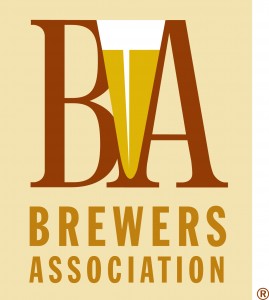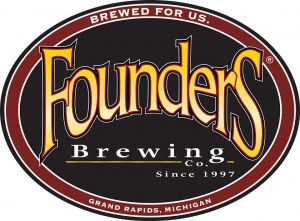
On one side of the equation sit companies like Founders (Mich.), 10 Barrel (Ore.), and Blue Point (NY), all of which were bought out – in part or in whole – by larger, international beer companies. While those three brands will now be able to use the money and the distribution reach of their new investors and owners to grow, there’s a definitional downside: they’ve left the ranks of the craft realm, at least as established by the industry-representing Brewers Association.
Still considered craft breweries, however, are those that sit on the other side of the formula: those breweries that sold partial stakes to the private equity firms that have increasingly focused on craft beer, like Sweetwater, Southern Tier and Uinta.
All six companies brought in seven-to-eight figures of investment. So why does one type trigger praise and another expulsion? Increasingly, beer industry members, consumers, and media alike are discussing the paradigm. Some wonder whether the addition of private equity could call into question the veracity of a brewery’s independence the same way selling out to a larger, international, non-craft brewer does. Still others are even starting to question why, counter to the BA’s position, a brand’s ownership should be relevant to the craft brewer’s art.
To refresh, to be considered a craft brewer in the eyes of the BA, a brewery must be small (produce less than 6 million barrels), independent (less than 25 percent owned by an alcoholic beverage industry member that is not itself a craft brewer), and traditional (the majority of a brewery’s total beverage alcohol volume is in beer, instead of alternative products like flavored malt beverages).
Such a definition would disqualify Founders, even though the brand sold only a partial stake — 30 percent — to Mahou San Miguel, a Spanish brewer selling many millions of barrels a year. But Founder’s itself is a terrific growth story, one of a company that once neared bankruptcy but was saved, at least in part, by the obsessive following of fans of high-quality, experimental products like its Breakfast Stout.
It’s that kind of contrast that raises the question.
Hugh Sisson, founder of Clipper City Brewing (d/b/a Heavy Seas Beer), said it “sets a bad precedent” to strip a company of its craft title simply because it struck a deal with a larger strategic partner.
“We have to be very careful because, yes, this started as a cottage industry, but it’s an industry that’s now in full blown adolescence,” he told Brewbound. “There’s no reason to go penalizing companies because they’ve been successful.”
Sisson added that he does believe independence is an important factor of being a craft brewer, but that a company can retain its independence in a deal (he said he still believes Goose Island, Red Hook, and Widmer to be craft, despite their affiliations with A-B, for instance).
But that’s not how things sit with the BA. Following Anheuser-Busch InBev’s acquisition of 10 Barrel last month, the organization’s chief economist, Bart Watson, published a blog post on the BA’s site, noting that, unlike A-B InBev, no private equity firm “also owns the largest distributor in the country.”
“Independent brewers are all going through the same business struggles,” Watson told Brewbound. “When a brewer stops being independent, they have certain advantages. It matters how they operate in the marketplace.”
Watson explained that the difference between being bought and taking on private equity is fundamentally about “undue influence.” In essence, with private equity, brewers retain their independence, he said.
“I don’t think that a capital company coming in necessarily affects how a brewery works,” he said. “They’re not there to change how these breweries operate. They’re there to help them grow and provide investment.”
Veteran brewer Alan Newman disagrees.
Newman, who founded Magic Hat Brewing, but left the company in 2010 after it was sold to KPS Capital Partners, a private equity firm, said that there actually is a level of independence lost when any company, including a brewery, decides to take on private equity.
“I’ve never seen a private equity deal that didn’t have teeth,” Newman recently told Brewbound. “I don’t know what ‘undue influence’ means. Investors have the right to make suggestions and, depending on what the conditions are, they have the right to go as far as to fire people and release products.”
Similarly, Brad Hittle, co-founder of Two Roads Brewing, touched on that earlier this year during a Brew Talks event hosted at the company’s facility in Stratford, Conn.
“[If] the brewer wants to go out and buy Jordanian sage seeds that’ll cost 30 dollars a barrel, the private equity guys are going to say, ‘Hold on a minute, exactly what’s that going to do for us?’” he said at the time. “Everything is payback and turn, which, you know, it’s good to run a business and try to make money… the relationship is going to be more strenuous, obviously.”
So what’s the significance as to whether ownership should matter with regard to a brewery’s standing? For one thing, at a time when the market remains hot, it is going to affect decision-making about company futures.
Sisson, for one, said he’s in the position of thinking about an exit himself, adding that he’d “absolutely” consider the company’s standing as a “craft brewer” when mulling over his options — whether they be partnering with a private equity company or with the likes of A-B InBev.

Another point of significance: the incongruity has even trickled on down to the retail level. Earlier this month, Craft Beer Cellar, a small-but-influential chain of craft-centric retailers that operates 13 stores in seven states, announced it would no longer exclude beers from its stores based solely on who owns the brand. Since being founded in 2010, Craft Beer Cellar has sold only beer considered to be craft by the BA.
Then the Founders deal was announced.
“Looking at what Founders did, we realized this isn’t the way we can continue defining beer,” Kelsey Roth, head of programming and training at CBC, told Brewbound at the time of the announcement. “Are we going to define beer by its ingredients and quality or by who owns it?”
Peering into the future, Sisson said it doesn’t really matter how “craft brewers” are defined. The industry will continue changing, he said, but the axle that keeps it moving is the consumer, who will always have the ultimate say, no matter who partners up.
“If the consumer still thinks this is authentic, artisanal, blah, blah, blah, then I don’t know that you can reclassify a brewery,” Sisson said. “You got a tiger by the tail on this because there’s a lot of changes coming and at the end of the day, the only thing that’s valid is how the consumer perceives it.”
